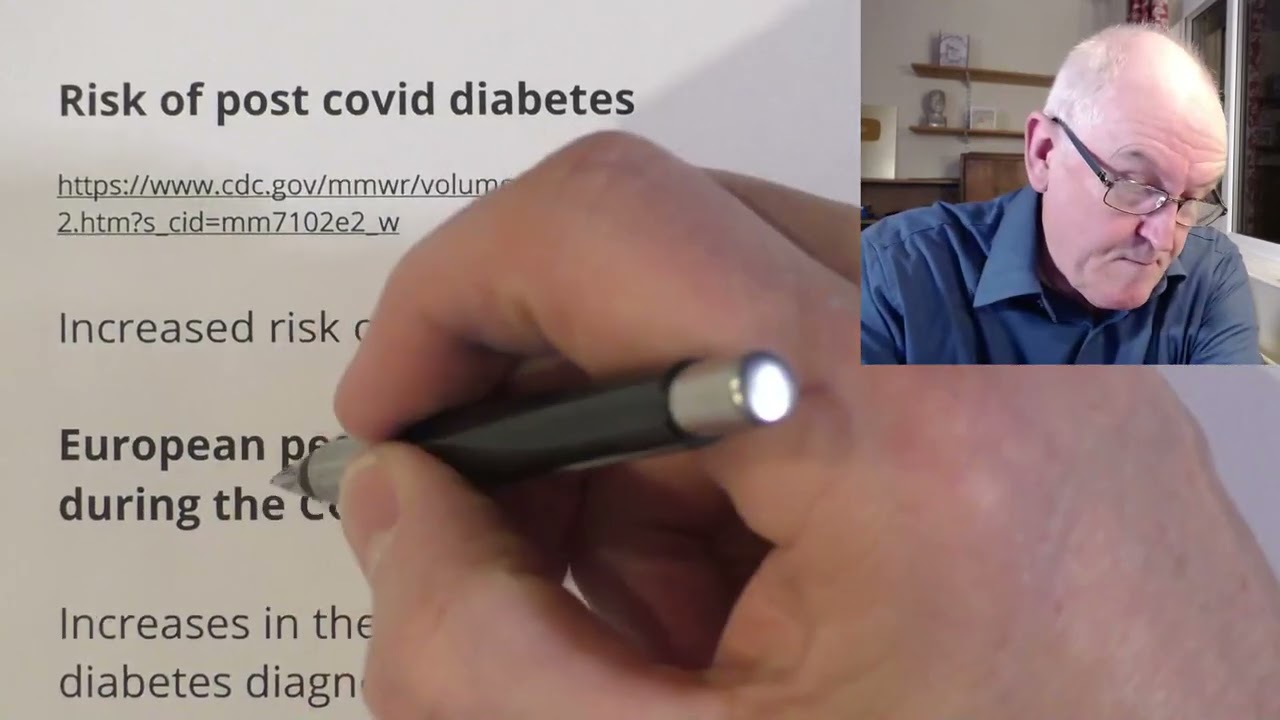Common cold symptoms with acute infection, but can there be long term after effects of infection.
Link to free download of my 2 textbooks, http://159.69.48.3/
https://www.ons.gov.uk/peoplepopulationandcommunity/healthandsocialcare/conditionsanddiseases/articles/coronaviruscovid19/latestinsights
Long COVID continues to affect more than a million people
1.3 million people (2%)
in the four weeks to 6 December 2021
LC for less than 12 weeks
21% (270,000 people)
LC for more than 12 weeks
70% (892,000 people)
LC for a year or more
40% (506,000 people)
20% reported their ability to undertake day-to-day activities had been “limited a lot”
Symptoms
Fatigue, 51%
Loss of smell, 37%
Shortness of breath, 36%
Difficulty in concentrating, 28%
Self-reported long COVID was greatest in:
aged 35 to 69 years
females
people living in more deprived areas
those working in health care and social care
those with another activity-limiting health condition or disability
those in teaching and education
Encephalitis lethargica
https://www.researchgate.net/figure/Encephalitis-lethargica-mortality-in-Britain-1918-1940_fig7_261835322
Sleepy sickness
https://academic.oup.com/brain/article/140/8/2246/3970828
Brain disease
Statue-like condition, speechless, motionless
One million victims or more
Half a million deaths
Most survivors never returned to their pre-morbid vigour
Oliver Sacks
They would be conscious and aware – yet not fully awake;
they would sit motionless and speechless all day in their chairs, totally lacking energy, impetus, initiative, motive, appetite, affect or desire;
they registered what went on about them without active attention, and with profound indifference.
They neither conveyed nor felt the feeling of life; they were as insubstantial as ghosts, and as passive as zombies
English sweats (England, 1529)
mal mazzuco (Italy, 1597)
Kriebelkrankheit
(Germany, 1672–75)
Rafania (Sweden, 1754–57)
nona (Italy, 1890–91)
Post encephalitic Parkinsonism
Risk of post covid diabetes
https://www.cdc.gov/mmwr/volumes/71/wr/mm7102e2.htm?s_cid=mm7102e2_w
Increased risk of severe COVID-19
European pediatric populations during the COVID-19 pandemic
Increases in the number of type 1 diabetes diagnoses
Increased frequency and severity of diabetic ketoacidosis
CDC
Group 1
Diabetes incidence among patients aged less than 18 years after covid diagnosis
Group 2
Diabetes incidence among those matched by age and sex, no covid diagnosis
Group 3
Received a pre pandemic non–COVID-19 acute respiratory infection diagnosis
Result
N = 80,893 patients with COVID-19
New diabetes diagnosis 0.08%, 64 patients
New diabetes diagnosis was 31% more likely to occur
N = 439,439 patients with COVID-19
New diabetes diagnosis 0.25%, 1,233 patients
New diabetes diagnoses were 166% more likely to occur
New diabetes diagnosis in less than 18s
116% more likely to occur among those with COVID-19 than among those with ARI during the pre pandemic period
Non–SARS-CoV-2 respiratory infection was not associated with diabetes.
More severe covid may increase risk of DM
Implications
highlights the importance of COVID-19 prevention strategies in 18s and under
Monitoring for long-term consequences, DM 1 and DM2
More than 30 days after the index date
Screen for diabetes symptoms post covid
Polyuria
Thirst
Weight loss
Increased hunger
Fatigue
Stomach pain
Nausea or vomiting
Also
https://www.diabetes.org.uk/diabetes-the-basics/diabetes-symptoms
Genital itching or thrush
Cuts and wounds take longer to heal.
Blurred eyesight
Developing DKA
breath that smells fruity (like pear drop sweets, or nail varnish remover)
deep or fast breathing
dry skin
low blood pressure
confusion
feeling very tired or sleepy
passing out
Aetiology of post covid DM
? direct attack of pancreatic cells expressing angiotensin converting enzyme 2 receptors
? stress hyperglycemia resulting from the cytokine storm
? alterations in glucose metabolism caused by infection
? precipitation of prediabetes to diabetes
Source
